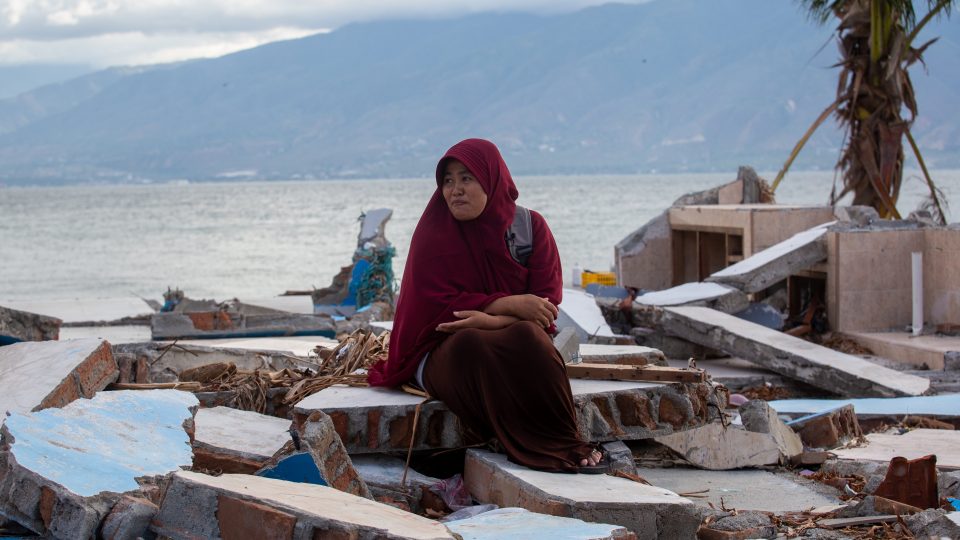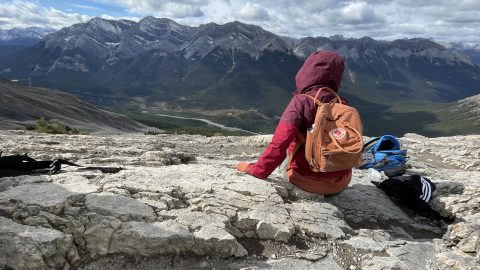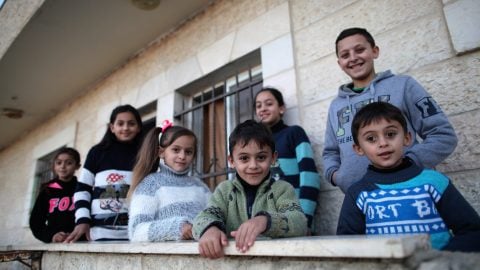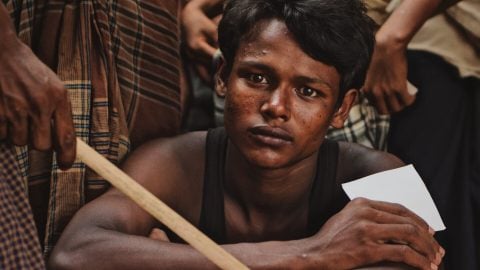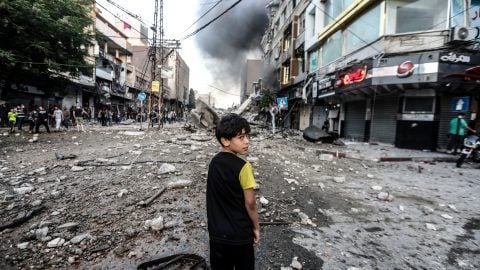When a natural disaster strikes, especially one that affects multiple regions, we’re proud to say the world reacts swiftly and generously. The 2004 tsunami was one such example. Within days, multiple aid agencies were on the ground. But the effects of such disasters can last for years, often disrupting generations of families.
Read on about Marlina from Jakarta, Indonesia. The effects of the tsunami in 2004 claimed multiple members of her family. But it also sent her down a path of social work which led to Islamic Relief. Learn her story here.
Marlina wakes up to the tsunami
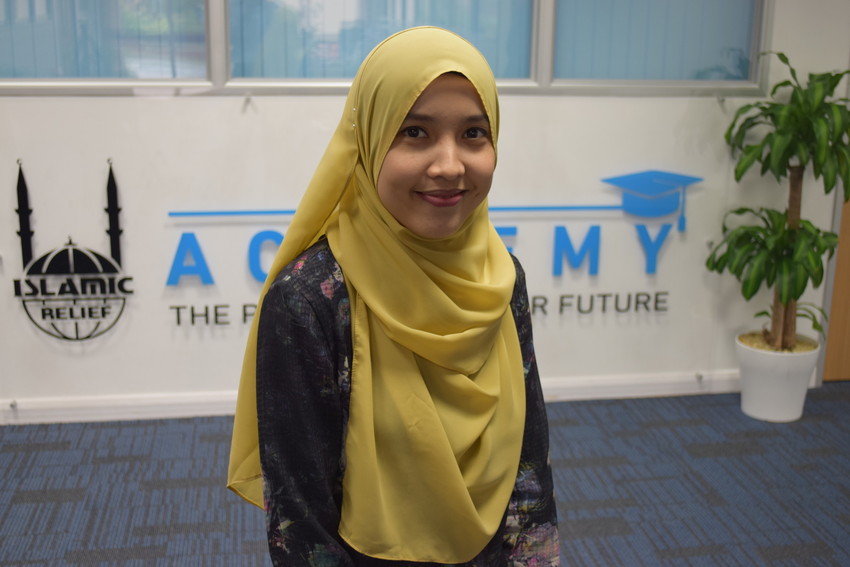
Days before the 2004 tsunami struck, Marlina was sent a plane ticket from her sister, Tharsiah, to visit her and their parents in their hometown, Banda Aceh. Her plane was due to leave Jakarta on December 30.
Four days before the plane came, the tsunami hit. Banda Aceh was the second worst affected area in Indonesia. Desperate for news of her family, Marlina decided to take the plane and go to Banda Aceh as planned. With the huge number of aid agencies trying to reach Aceh, Marlina’s plane was delayed by nine hours. She arrived in the early hours of the morning to total devastation.
“I arrived on December 31, 2004,” she says. What she witnessed as soon as she arrived will stay with her forever.
“I went outside, and saw many dead bodies around the airport.”
Marlina managed to find a motorcycle taxi to take her into town. After an hour of looking, she finally traced some of her family, who were staying with relatives eight kilometres away in the highlands. It was one of the few areas where the tsunami had not reached.
“My parents’ house was severely damaged by the tsunami and the worst thing was that there was no way to get to my sister’s house in the coastal area. We later found out her house had been swept away, along with Tharsiah and her family.”
The search for her family
Since the earthquake shocks were still ongoing, Marlina stayed only one night in Aceh before she took her family further south to Medan. They stayed there for two months, trying to come to terms with what had happened.
Three days into their stay, they got a phone call to say one of Tharsiah’s daughters, Ullaya, had been found. She was only nine at the time but was very bright and articulate, so had been interviewed by the local newspaper and photographed. Local people had recognized her and contacted Marlina’s mother with the news so they could be reunited.
Ullaya had been caught up in the torrent of water but had managed to survive by clinging to a piece of wood floating in the tsunami wash.
How she found Islamic Relief
Marlina decided she needed to do something to help. After searching, she applied for a job at Islamic Relief and started her administrative role that February. She quickly moving to the orphan sponsorship program where she was tasked with identifying and supporting Acehnese children.
“I joined Islamic Relief at the end of February 2005 and arrived back in Banda Aceh on March 1. Things were already getting better, there were no more dead bodies around. People were living in tents and makeshift shelters, and food and water were being handed out by Islamic Relief, and some other aid agencies.
The final number of people who lost their lives to the 2004 Indian Earthquake and the resultant tsunami is 227,898 people across 14 countries. This story is a reminder of how such disasters can change people’s lives forever, long after the rest of the world has moved on.
Marlina’s work with orphans
After the 2004 tsunami many families were torn apart. Marlina’s role as an orphan sponsorship officer was very crucial.
“It was very hard. The orphans were scattered in many places. They’d lost everything. I saw so many children who were homeless and had no family. It was years ago, but remembering it all now brings back how difficult it was at the time.”
Temporary boarding houses had been hurriedly set up to take in orphans and those who had lost their homes and family. Marlina visited these houses to do an assessment of their condition and needs (see what makes our Orphan Sponsorship Program). It was overwhelming for her to see that so many people still needed help. “They could sleep and eat there, but there was no schooling at that time,” she said.
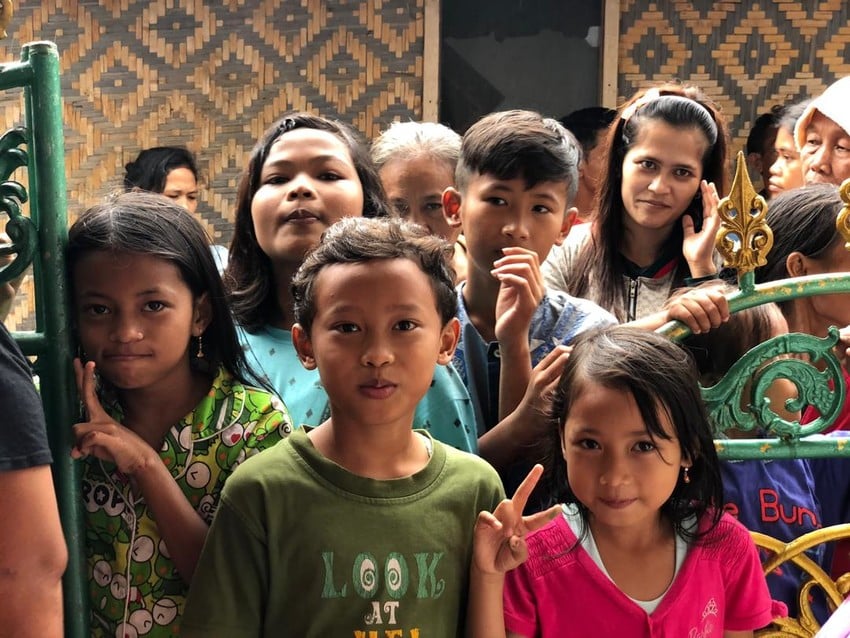
“One room, designed for eight to 10 orphans, would be occupied by between 30 and 45 children with very limited bedding.” She worked with children orphaned by either the tsunami or the conflict that had lasted 30 years preceding that. In a month, she assessed 300 children, later placing them with extended family, and funding their basic needs and education through Islamic Relief’s one-to-one orphan sponsorship program.
“We also arranged picnics and summer camps, and provided mental health support. I learned so much about psychosocial work and children at that time. You could see that the conflict orphans were different from the tsunami orphans. Conflict orphans had often seen their parents being killed. Tsunami children were faster to heal even though conditions were hard. So their needs were different and we had to work with them individually. ”
Rebuilding starts in 2007
Marlina, assisted by an Islamic Relief volunteer, continued going from shelter to shelter looking for orphans and finding them somewhere better to live. For the first year, the team would deliver money for food and education door to door. Then in around 2006, the banks began to operate again and money could be distributed more easily.
“The orphans were so thankful for the help Islamic Relief could give.”
“The orphans were so thankful for the help Islamic Relief could give,” said Marlina. “In 2005 and 2006, Islamic Relief was very successful to be able to distribute the donations to so many beneficiaries. In 2007, infrastructure started improving and the coordination between organizations started getting better. So then the focus shifted from the emergency phase to the development phase, which included building schools and hospitals and planning for the future.”
Her niece Ullaya, who was supported by Islamic Relief’s one-to-one sponsorship program, is now 19 and has become a cheerful teen who makes friends easily and is no longer traumatized. She is supported by her grandmother, Marlina and the rest of their family.
These efforts could not have been made without the support of our donors. Thank you for your generosity.


